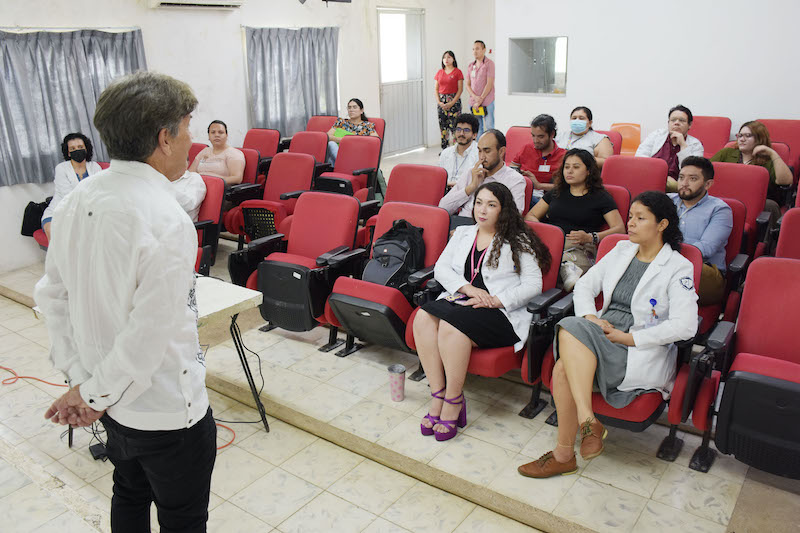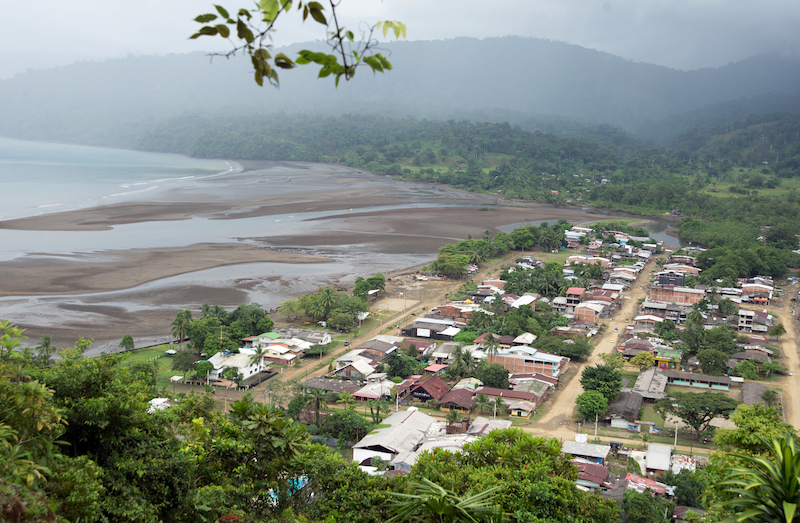As of October 2025, Project ECHO partners in Latin America and the Caribbean are leveraging their ECHO networks in 20 countries, using telementoring to build programs more responsive to the region’s ongoing mental health crisis and improve access to services in rural communities.
Para leer en español
Para ler em português
Mental health ECHO program teams in this region tackle entrenched challenges: providers with insufficient resources for diagnosing and treating mental health conditions; a stigma surrounding mental health care; and an increasing mental health burden since the COVID-19 pandemic, especially in suicidality and adolescent psychology.
For health providers in Latin America, the ECHO Model and network fill a gap to provide training and services that they and their patients are otherwise unable to access, especially in rural communities.
“In Mexico [and many parts of Latin America], there is significant stigma around mental health. People feel more comfortable talking to a community health worker than a psychiatrist. ECHO programs make the difference that nothing else can,” says Mauricio Tohen. He supports the Project ECHO and SE-COMISCA behavioral health partnership as part of his role with the Department of Psychiatry at The University of New Mexico.

Dr. Mauricio Tohen presents to doctors and health care professionals during an ECHO session for the health department of Yucatán. Credit: Not known
Reaching the Most Rural Communities
“Many smaller towns and villages lack mental health teams. ECHO helps build capacity so that primary care providers can offer mental health services to the population, in tandem with support from city or urban providers,” says Dr. Sandra Romano, ECHO program coordinator, The University of the Republic in Uruguay, an institution that holds ECHO Superhub status.
The ECHO Model works in Latin America because the learning topics can be localized to cultural contexts — and the technology is simple. As of October 2025, ECHO partners have launched mental health telementoring programs in Argentina, Bolivia, Brazil, Chile, Colombia, Costa Rica, Dominican Republic, Ecuador, El Salvador, Guatemala, Haiti, Honduras, Jamaica, Mexico, Nicaragua, Peru, Puerto Rico, Trinidad and Tobago, Uruguay and Venezuela. Thirteen other global hubs have programs in Latin America.
“ECHO has shown us that we can connect as a community, even with geographic barriers, with simple devices,” says Juan Fernando García Cano, consultant for the Pan-American Health Organization in Colombia and university professor. “The heart of these [ECHO programs] is not in the technology, but in the people and in the processes. We do not always have the latest smartphone, the latest technology available, but we have the most powerful [human] connection.”
Intensely rural communities, such as those only accessible by river or in the jungle, stand to see some of the greatest benefit from mental health programs in Latin America. “Now, health workers with little to no prior training for mental health learn from specialists how to intervene or refer,” says Dr. Yulissa Mosquera, a subject matter expert with the PAHO-RENATA mental health ECHO program. “For the first time, these health workers feel mental health conditions can now have real solutions.”

A coastal view of the rural community of Chocó, a jungle-dense region of Colombia with historically difficult access to medical care or infrastructure. Credit: Adobe Stock, Harold
“ECHO is an interdisciplinary multiplier. Everybody comes together through the ECHO Model,” says Dr. Ana Maria Martorella from Rehue, a non-governmental organization promoting adolescent health in Argentina using the ECHO Model.
A New Focus on Mental Health through Telementoring
In Mexico, many ECHO partners include aspects of mental health in other programs. However, after the pandemic, the Mexican Institute of Psychiatry started their first program fully focused on mental health in Chihuahua. Dr. Marisa Morales, a member of the Mexican Institute of Psychiatry and director of their ECHO mental health curriculum, started the program specifically to build on ECHO’s existing work reaching rural community providers.
One long-standing ECHO partner, the Executive Secretariat Council of Ministers of Health of Central America and the Dominican Republic (SE-COMISCA) brings together health workers from eight countries. They are using the ECHO Model to address diabetes, HIV, laboratory testing quality, Long COVID, and women’s health.
Building on the ECHO network in Central America, they established a new mental health-focused program, with monthly sessions providing case-based education in Alzheimer’s disease, anxiety, dementia, depression, and suicide risk in adolescents.
To learn more about ECHO programs in mental health, register for Project ECHO’s telementoring platform iECHO.org.
Note: Originally published in October 2024, this article was updated on November 4, 2025 to include an updated list of countries in Latin American countries currently hosting ECHO mental health programs.

